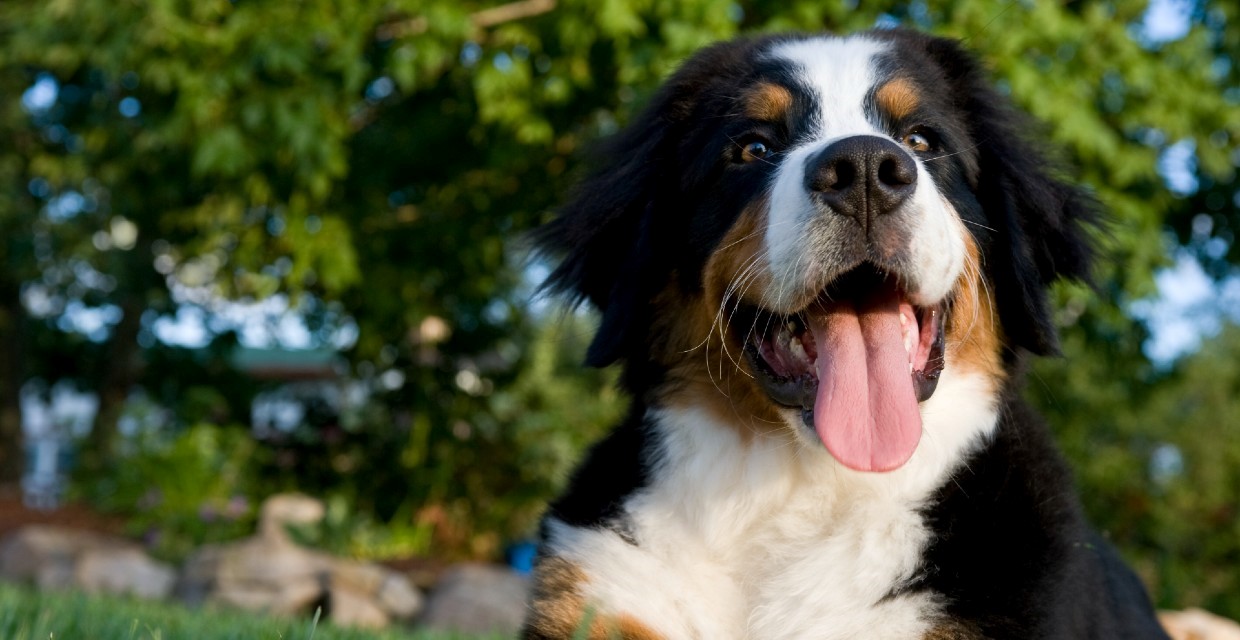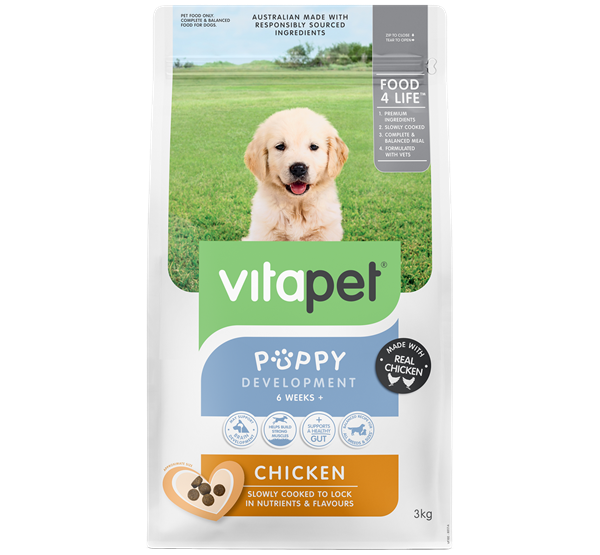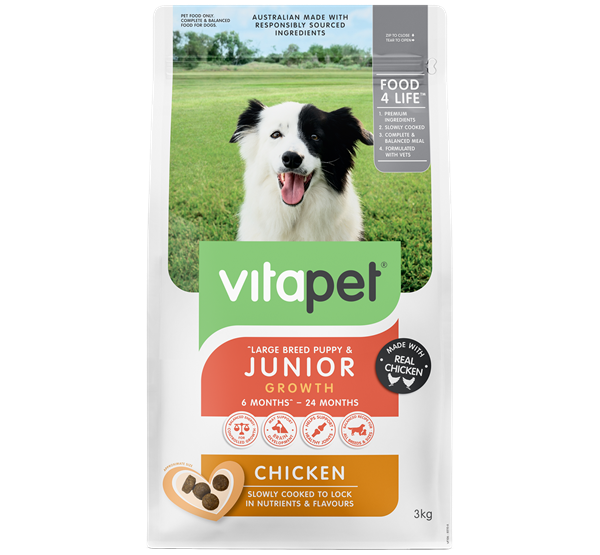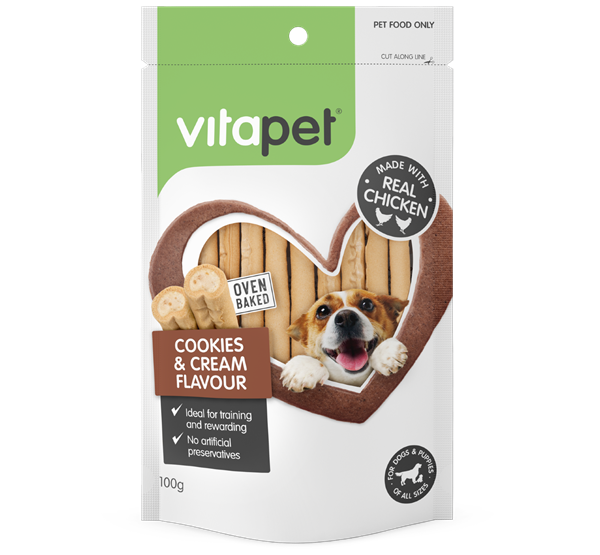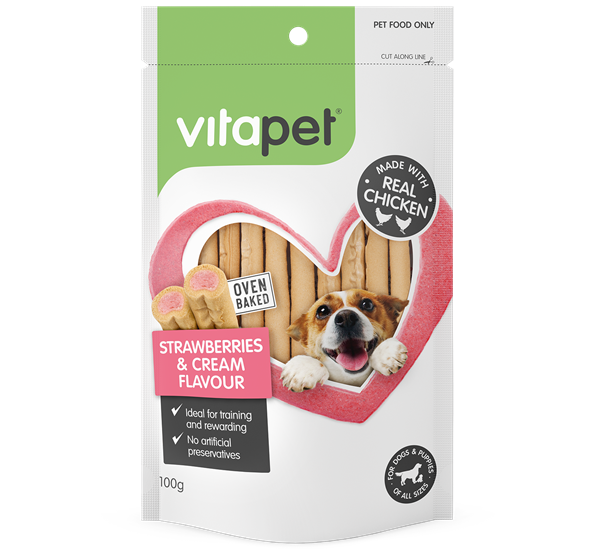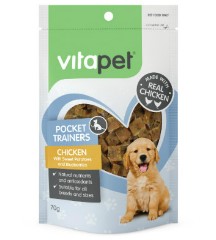If you put a Chihuahua next to a Dobermann it’s pretty obvious that in terms of size, these dogs are like chalk and cheese! It’s not that surprising then to hear that their nutritional requirements are quite different too.
Large breed puppy growth means a higher nutritional demand and so in order for their bodies to develop properly, they need to be supported by a carefully formulated diet.
So, how can you help your large breed puppy develop healthy bones and joints?
Feeding a nutritionally balanced dry puppy food for large breeds is all that’s needed.
What are the calcium needs of a large breed puppy?
It’s not as simple as adding extra calcium to a large breed puppy’s diet. In fact, it’s also about the ratio of calcium to phosphorus in the diet that is important, alongside considerations of energy delivery, to ensure your pup doesn’t end up with skeletal abnormalities.
To be exact, the ratio of calcium to phosphorus in large and giant puppy foods needs to be within a much tighter range than it does for small and medium size puppy diets1,2. A ratio that is too high can lead to cartilage and skeletal abnormalities such as elbow dysplasia, which may require surgery later. A ratio that is too low can lead to abnormal bowing of limbs and even fractures of bones due to a lack of calcium strengthening the bone.
For this reason, growing large breed dogs should not receive vitamin or mineral supplements if they are fed a complete, balanced high-quality diet, because you may accidentally change this important ratio.
Should I just feed as much as my puppy wants?
Large breed pups are genetically programmed to have fast growth rates that can potentially stress the developing skeleton. In fact, feeding too much (overnutrition) can result in even faster growth rates that can lead to malformations such as elbow or hip malformations. For this reason, growth rate needs to be carefully controlled by a diet and feeding amounts that are specifically designed for large breed puppies. Providing a diet that has a strict fat and energy content during the later growth period can reduce the number of calories and limit weight gain during this critical phase of life.
In addition to this, large breed dogs are at a much higher risk of developing arthritis as they age, particularly those that are overweight or obese3 so it’s important to follow the food’s feeding guide and have regular veterinary health checks during the early stages of a puppy’s life to check their body’s development.
How do I know how big my puppy is going to grow?
It’s all in the paws, right? Not exactly. Paw size is not an accurate way to determine adult size. Provided your puppy is not malnourished, an adult dog’s size is mostly determined by genes inherited from their parents. A simple way to get an estimate of your dog’s adult weight is to average the weights of the parents. Otherwise, it’s just a matter of time and patience.
Is the timing of desexing in large breeds important*?
Desexing recommendations for large breed dogs has changed over the past few years due to emerging scientific research. In my practice, we recommend that male large breed dogs are desexed later, when the growth plates in their limbs have closed to reduce the chance of musculo-skeletal issues.
Instead of 6 months of age, male dogs over 20kg are desexed based on their estimated adult weights as follows:
- Less than 20kg at 6 months old
- 20-30kg at 12 months old
- 30-40kg at 15 months old
- Over 40kg at 18 months old
Our practice recommends that all female dogs are desexed at 6 months of age due to the risk of mammary cancer if they are allowed to go through heat cycles.
Sometimes well-meaning pet owners try to formulate their own home-prepared puppy diets, but this can risk permanently affecting their puppy’s development. It’s vital that large breed puppies are fed a diet that is matched to their growth requirements.
So, it is my recommendation that you choose a high quality commercial diet that has been formulated for large breed puppies.
*Note that ideal desexing times should be discussed with your own vet, who will be able to individualise their recommendations to best suit your puppy.
References:
1. Larsen J. Focus on nutrition: feeding large breed puppies. Compend Contin Educ Vet. 2010;32(5):E1-4.
2. Tryfonidou MA, Holl MS, Vastenburg M, Oosterlaken-Dljksterhuis MA, Birkenhager-Frenkel DH, van den Brom WE, Hazewinkel HA. Hormonal regulation of calcium homeostasis in two breeds of dogs during growth at different rates. J Anim Sci. 2003;81(6):1568-80.
3. Hand M, Thatcher CD, Remillard R, Roudebush P, Novotny B. Small Animal Clinical Nutrition. 2010. Mark Morris Institute.












